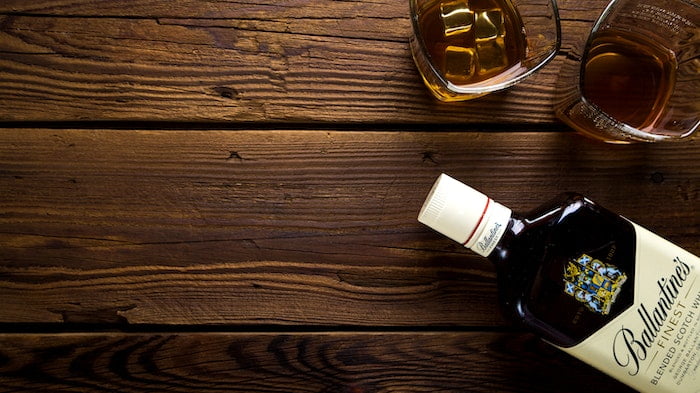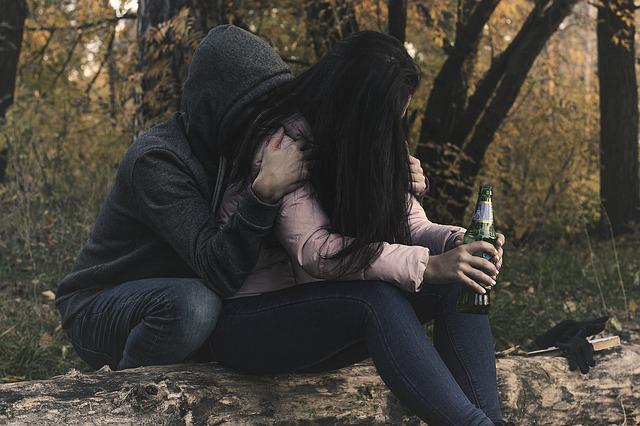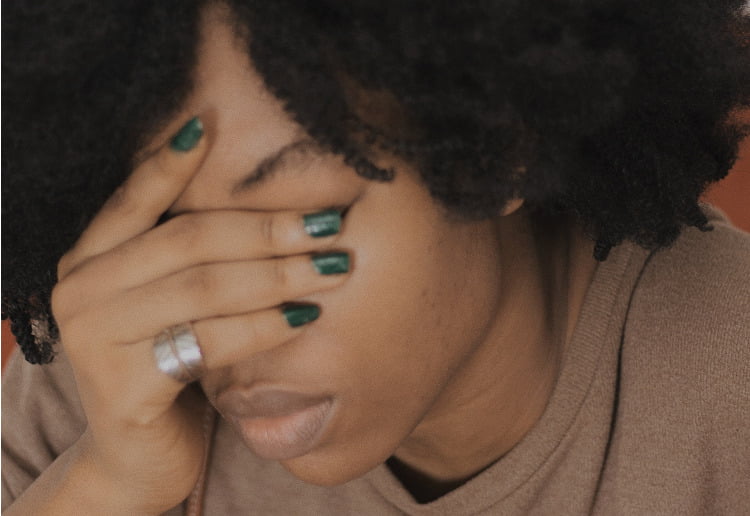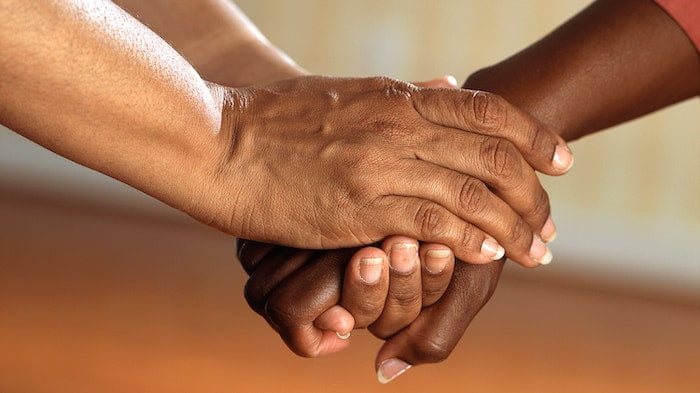Anxiety and Alcohol: Does Drinking Cause Anxiety & Panic Attacks?
Anxiety has been defined as a chronic feeling of worry and unease about something. This can be mild or severe and is perfectly normal if it concerns something like a job interview, tests, exams, or meeting new people.
Sometimes, however, people experience severe anxiety and find it incredibly difficult to cope with these feelings all the time.
Generalised anxiety involves a wide range of situations and problems, rather than one specific problem such as social anxiety.
Anxiety presents with both mental and physical symptoms, which can vary according to the person and the severity of their addictionb:
- Restlessness
- Going over different outcomes in your head
- Thinking about all the things that might go wrong
- Trouble concentrating and brain fog
- Sweatiness and heart palpitations
- Tight chest and trouble breathing
- Stomach aches
- Dizziness
There are multiple causes of anxiety, but experts have suggested that it is a mixture of both environmental and genetic factors:
- Inherited family genetics
- Stressful traumatic experiences
- Long-term health conditions
- Alcohol abuse
- Drug abuse
Drinking to Reduce Anxiety: Anxiety Reduction Theory

Anxiety and alcohol tend to come hand-in-hand, and most people experience ‘hangxiety’ after a drinking session. There is a common theory that states alcohol calms the nerves and has a relaxing effect, reducing worry and anxiety.
This ‘anxiety reduction theory’ is still widely believed due to the immediate sedative effects of alcohol.
This theory has two parts, the first being the reduction of anxiety, and the second being that anxiety motivates drinking.
A study on rats found that low alcohol intake reduced stress because of its effect on the GABA receptors in the brain. Research has shown that ethanol slows down brain processes and central nervous system signals, initially making you feel more confident and calmer.
The key word here is ‘initially’, these sedative effects wear off quickly.
A significant number of alcoholics and those with alcohol use disorders are diagnosed with anxiety and generalised anxiety disorder.
A study revealed that over 41% of alcoholics drink to reduce anxiety, as they believed alcohol reduced their fears.
This is not the case, as alcohol exacerbates mental health problems and can create new anxiety symptoms and fears. Anxiety caused by moderate drinking may also lead people to use alcohol as a coping mechanism for their worries, leading to alcohol addiction.
Co-occurring disorders: Dual diagnosis

It has been scientifically proven that alcohol makes pre-existing anxiety worse, but it can also create new anxieties and cause an onset of anxiety symptoms. People tend to self-medicate their anxiety symptoms or stresses by drinking, but alcohol does not get rid of the underlying causes.
Alcohol is a plaster for anxiety, and the more someone uses it to cope, the worse their anxiety will become.
Alcohol directly affects the amygdala, an area of the brain used to regulate and process emotions.
Studies on the brain have found that individuals who abuse alcohol tend to have abnormalities in their amygdala, causing emotional imbalances.
The day after you have been drinking heavily, you might be familiar with the following feelings:
- Low mood
- Not wanting to go out
- Worrying about what you said or did
- Going through your phone checking you haven’t sent anything
- Checking who you called
- Replaying the night’s conversations
- Feeling sorry for things that haven’t happened
- Wanting the day to be over
- Shortness of breath
- High heart rate
- Hot flushes and sweating
This is a widely experienced response to a night of binge drinking, also called ‘hangxiety’. When we consume alcohol, we are flooded with dopamine which increases the pleasure in our brains.
This good feeling only lasts for a short time, as when the levels of dopamine start to dip, people experience feelings of anxiety, depression, and low mood.
Heavy drinkers and binge drinkers may be subject to brain changes. There is a common influx of GABA, called gamma-aminobutyric acid.
This induces calm and relaxing feelings but also causes withdrawal symptoms when people stop drinking as the body and brain have suddenly accustomed to this relaxed feeling. Anxiety will soon follow, so people tend to drink again and may consume a higher quantity if they are feeling anxious.
This cycle of alcohol and anxiety can easily trap people, as drinking is the easiest way to get rid of anxiety symptoms immediately, but they will return with force.
If you are showing symptoms of anxiety or depression with alcohol, that is a sign of alcohol abuse.
Do I Have a Problem with Alcohol?

Being the most used substance in the world, alcohol is also the most commonly misused substance as well.
Abusing alcohol means that you are using alcohol in an unhealthy way, most likely drinking to either cover up issues or to try and self-medicate.
This is characterised by drinking more than the government’s published guideline – aim to drink less often, and if you do, do so in moderation.
The usual amount of alcohol consumption is 2 drinks for a man per day, and 1 drink a day for a woman. Alcohol use disorders are characterised by drinking in excess despite negative consequences.
This is followed by the inability to control the use of alcohol and an influx of negative emotions if you can’t or don’t drink.
If you think you or a loved one might have a problem with alcohol use, consider taking a questionnaire to identify any of these negative behaviours and thoughts.
The most common questionnaires are the CAGE questionnaire and the more advanced AUDIT questionnaire.
The CAGE questions include the following:
- Have you ever felt you should cut down on your drinking?
- Have people annoyed you by criticizing your drinking?
- Have you ever felt bad or guilty about your drinking?
- Have you ever had a drink first thing in the morning to steady your nerves or to get rid of a hangover (eye-opener)?
If you are answering more than 2 of these questions with a YES, it is likely you have a negative relationship with alcohol.
If so, reach out for help to prevent your relationship with alcohol from getting any worse.
The Different Types of Anxiety and Their Triggers

The range of anxiety caused or exacerbated by alcohol can vary depending on the person. Anxiety is a normal and common response to fearful or scary situations, and everyone in the world has experienced anxiety about something at some point.
When anxiety persists, it can create anxiety about getting anxiety.
This may interfere with the functioning of your life and can prevent you from reaching your full potential.
The following are anxieties that commonly present alongside alcohol use disorders:
- GAD: Generalised Anxiety Disorder is the chronic and excessive worry about general things that will interfere with your life. These feelings present most days, lasting for over 6 months.
- Panic Disorder: panic disorder is often characterised by reoccurring and sudden panic attacks. These panic attacks are severe episodes of fear that can be completely debilitating and may feel as if you are having a heart attack.
- SAD: Social Anxiety Disorder, also called social phobia, is the intense fear of social interactions, situations, public speaking performances, and any other social events. People with SAD often feel as though they will be judged so try to avoid any socialising at all due to this intense fear.
These types of anxiety can present with physical symptoms, often leading people to think they have an actual physical illness. The most common symptoms are:
- Chest pain
- Breathing difficulties
- Sweating
- Flushing and redness
- Heart palpitations
- Shaking
There can be certain triggers for anxiety (along with alcohol) that can make it worse, such as:
- Stimulants like caffeine and nicotine
- Medication
- Stress
Anxiety can be helped naturally by:
- Deep breathing
- Exercise
- Keeping on top of physical health
- Taking to support groups
- Cutting down on alcohol
- Getting enough sleep
- Eating healthily
There is no specific type of alcohol that may be causing your anxiety, as different types of alcohol can affect how you feel and how you react emotionally and mentally.
Anxiety is closely related to the amount of alcohol you are drinking and how frequently you are consuming it, rather than a specific type.
I Drank Too Much – How can I Calm Myself Down?

The length of time that the anxiety lasts after drinking depends on how much you drank and for how long.
Anxiety symptoms from alcohol can last up to 2 days, even after the hangover has gone.
Binge drinking anxiety is said to last longer than heavy drinking anxiety.
If you are currently struggling with hangxiety, then there are some things you can do today that will make you feel more at ease:
- Stay calm – if you haven’t done anything wrong, there is nothing to worry about
- Reassure yourself that it is normal to be anxious after drinking and it is only temporary
- Educate yourself about the link between alcohol and anxiety
- Think about talking to someone about alcohol or anxiety, or both
- Think about committing to cutting down on alcohol
- Try to eat healthily, drink lots of water, and go for a walk outside
- Talk to someone about how you feel, and try to see some friends or family
The only proven way to get rid of alcohol-induced anxiety is to stop drinking or drastically reduce your alcohol intake.
This entirely depends on whether you had anxiety before you drank alcohol or whether it was caused by alcohol. If alcohol is exacerbating the anxiety, try and address the causes of the underlying anxiety itself, whilst looking after your mental and physical health.
Alcohol may cause chronic anxiety or exacerbate levels of anxiety that are pre-existing.
It may also affect people with panic disorders and other mental health issues. Drinking patterns drastically affect mental health, causing physical symptoms as well as mental symptoms.
People often mask their anxiety by drinking, but this will only lead someone to alcohol addiction rather than treating the underlying anxiety itself. Alcohol will make anxiety worse, as alcohol-induced anxiety can induce feelings of panic, worry, and intense fear.
If you engage in moderate drinking, you may be less likely to suffer from alcohol-induced anxiety, but there is still a correlation between general mental health and alcohol consumption.
The only way to reduce alcohol-induced anxiety is to reduce or quit your drinking. This may cause alcohol withdrawal symptoms, but do not be tempted to drink again to get rid of these symptoms, as this will make detoxing harder in the long run.

People with anxiety disorders and people with panic disorders are predisposed to alcohol use disorders due to the likelihood of self-medication. Using alcohol to ‘solve’ your anxiety symptoms is an unhealthy coping mechanism and will only make you more anxious.
There are multiple treatment options available for different drinking habits, such as psychotherapies, alcohol detox services and different medications.
These effective treatments work to rewire brain chemicals and balance out the damage the alcohol has done so far.
In addition, you can help yourself from home to reduce the external factors and environmental factors affecting your anxiety.
Try some herbal remedies, educate yourself on anxiety, be open about how you feel, and improve your general physical health.
Getting outside, exercising, and eating healthily have a massive effect on mental health, as the release of natural endorphins changes our mood.
Think about whether you have alcohol dependence and whether you are using alcohol to bypass mental health issues. If this is the case, get in touch with us today.
For help overcoming your alcohol-induced anxiety at a local drug and alcohol rehab, or to learn more about anything mentioned in this article, call our expert team today on 0800 088 66 86.




